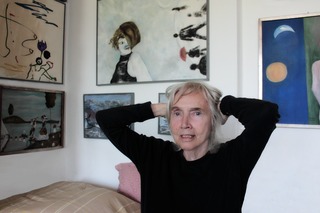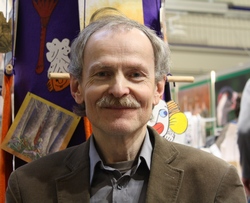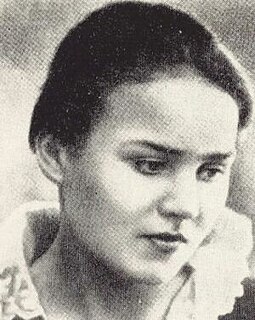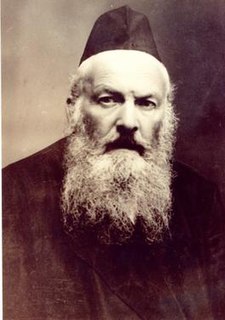 W
WYemima Avidar-Tchernovitz was an Israeli author whose works became classics of modern Hebrew children’s literature. Born in Vilna, Lithuania in 1909, she arrived in Palestine in 1921, at the age of 12.
 W
WPetras Cvirka was a Lithuanian author of several novels, children's books, and short story collections. He wrote under a variety of noms de plume: A. Cvingelis, Cezaris Petrėnas, J. K. Pavilionis, K. Cvirka, Kanapeikus, Kazys Gerutis, Klangis, Klangis Petras, Klangių Petras, L. P. Cvirka, Laumakys, P. Cvinglis, P. Cvirka-Rymantas, P. Gelmė, P. Veliuoniškis, Petras Serapinas, and S. Laumakys. His works have been translated into Belarusian, Bulgarian, Chinese, Czech, English, Estonian, Hungarian, Latvian, Polish, Romanian, and Uzbek.
 W
WCemach Feldstein ([t͡ʃɛɱɑħ fɛldstajn]; sometimes spelled Tzemach; Hebrew: צמח פלדשטיין; Yiddish: פעלדשטיין; Lithuanian: Feldsteinas; Russian: Семён Григорович Фельдштейн, Semyon Grigorovitch; December 30, 1884 - December 29, 1944 was a Lithuanian educator, author, an education reformist, a culture Zionist activist. As an educator he was served as the director of several Jewish gymnasiums, the most notable of which was the Hebrew Real-Gymnasium in Kaunas, Lithuania, where most of the subjects were taught in Modern Hebrew.
 W
WAldona Gustas is a Lithuanian – German poet and illustrator who has lived in Berlin since the early 1940s.
 W
WVanda Juknaitė is a Lithuanian writer, playwright and essayist.
 W
WKęstutis Kasparavičius is a Lithuanian author and book illustrator of over 60 children's books. His books have been translated into 26 different languages, including Chinese, Spanish, German, Portuguese, French, Italian, Russian, Polish, Ukrainian, Korean. Kasparavičius is known for his short feel-good stories about various comic characters. Bears, pigs, rabbits, and turtles find themselves trapped in puzzling and thought-provoking situations. Kasparavičius draws children's attention with detailed, colorful, and bright watercolor illustrations that are accompanied by humorous and witty stories.
 W
WVytautas Kernagis was a Lithuanian singer-songwriter, bard, actor, director, and television announcer. He is considered a pioneer of Lithuanian sung poetry.
 W
WMarija Lastauskienė née Ivanauskaitė and her sister Sofija Pšibiliauskienė were Lithuanian sisters who wrote under the shared pen name Lazdynų Pelėda. Marija married Belarusian literary critic and politician Vaclau Lastouski (Lastauskas), but divorced after a few years.
 W
WPinchas HaKohen Lintup or Pinhas HaKohen Lintop was a Religious Zionist Lithuanian rabbi and teacher who served as the spiritual leader of the Hasidic community of Biržai.
 W
WAdolfas Mekas was a Lithuanian-born American filmmaker, writer, director, editor, actor and educator. With his brother Jonas Mekas, he founded the magazine Film Culture, as well as the Film-Makers' Cooperative and was associated with George Maciunas and the Fluxus art movement at its beginning. He made several short films, culminating in the feature Hallelujah the Hills in 1963, which was played at the Cannes Film Festival of that year and is now considered a classic of American film.
 W
WSalomėja Bačinskaitė-Bučienė, mostly known by her pen name Nėris was a Lithuanian poet.
 W
WGabrielė Petkevičaitė was a Lithuanian educator, writer, and activist. Her pen name Bitė (Bee) eventually became part of her last name. Encouraged by Povilas Višinskis, she joined public life and started her writing career in 1890. She was the founder and chair of the Žiburėlis society to provide financial aid to struggling students, one of the editors of the newspaper Lietuvos žinios, and an active member of the women's movement. In 1920, she was elected to the Constituent Assembly of Lithuania and chaired its first session. Her realist writing centered on exploring the negative impact of the social inequality. Her largest work, two-part novel Ad astra (1933), depicts the rising Lithuanian National Revival. Together with Žemaitė, she co-wrote several plays. Her diary, kept during World War I, was published in 1925–1931 and 2008–2011.
 W
WŠatrijos Ragana was the pen name of Marija Pečkauskaitė, a Lithuanian humanist and romantic writer and educator. Her most successful works are Sename dvare and Irkos tragedija.
 W
WJurgis Savickis was a Lithuanian short story writer and diplomat representing interwar Lithuania mostly in the Scandinavian countries.
 W
WAntanas Augustinas Vaičiulaitis (1906–1992) was a Lithuanian fiction writer of the 20th century, and also known for his literary criticism and translations. His most prominent work is the novel Valentina.
 W
WElchonon Bunim Wasserman was a prominent rabbi and rosh yeshiva (dean) in prewar Europe. He was one of the closest students of Rabbi Yisrael Meir Kagan and a noted Talmid Chacham. In the interwar period, he served as rosh yeshiva of Yeshiva Ohel Torah-Baranovich.